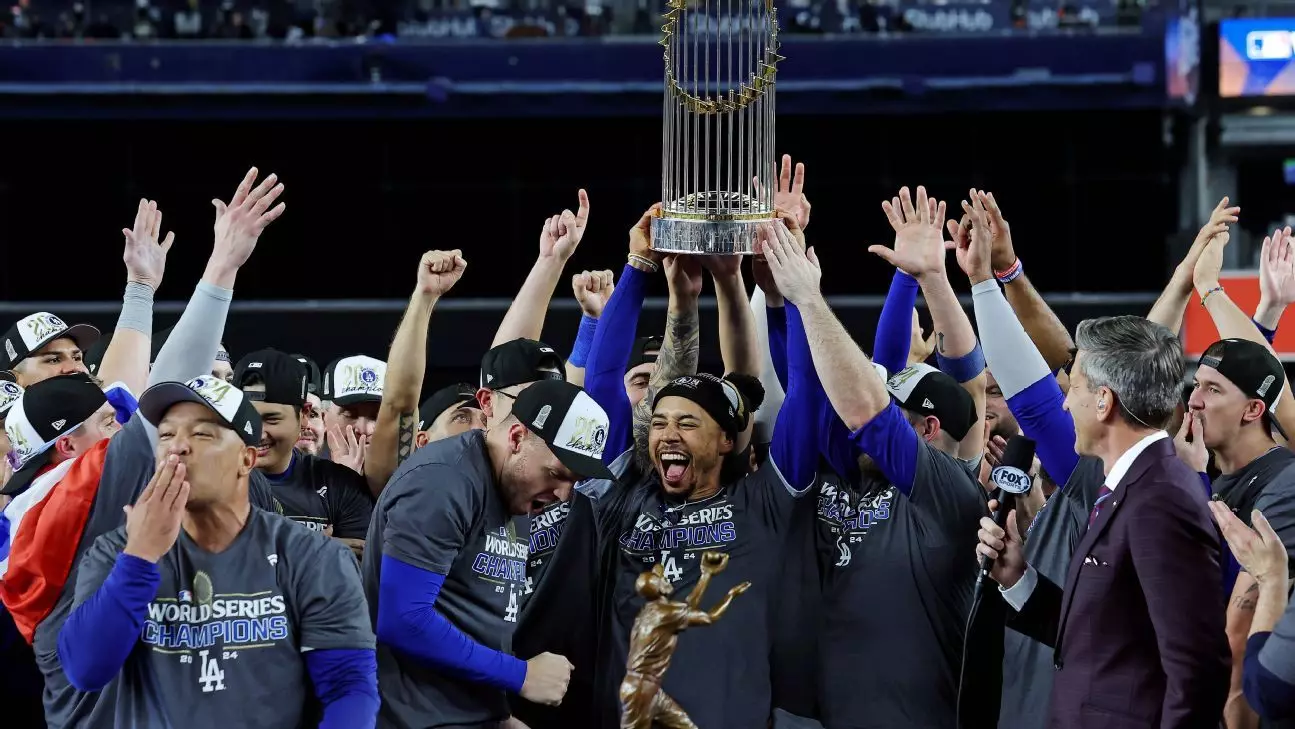The Los Angeles Dodgers are set to embark on an esteemed journey to the White House on April 7, marking a significant moment as they celebrate their triumphant World Series victory. This visit is not merely a ceremonial obligation; it embodies a historical honor bestowed upon each World Series champion, affirming the Dodgers’ place in baseball history and reinforcing their connection to American culture. While the excitement surrounding the visit is palpable, it prompts us to delve deeper into the implications of such an occasion, particularly in the broader socio-political context.
Dodgers manager Dave Roberts articulated the sentiments of pride among the team members, emphasizing the importance of this event not only as a celebration of athletic success but also as a testament to the legacy of their franchise. This acknowledgment of achievement is paramount, fostering unity and camaraderie among players, staff, and fans alike. In a world that often feels divided, such moments serve as a reminder of the power sports hold in bridging cultural and social gaps.
A Complex Intersection of Sports and Politics
However, the backdrop of this celebration is tinged with complexity. Recently, a story detailing baseball legend Jackie Robinson’s military service was temporarily removed from the Department of Defense’s website as part of a controversial initiative by President Donald Trump’s administration to reshape government narratives regarding diversity and inclusion. Robinson’s legacy as a trailblazer, both on the diamond and as a serviceman, adds layers to the Dodgers’ White House visit, complicating it with a historical context that transcends sports.
Roberts’ acknowledgment of Robinson’s contributions is significant, but it also reveals a broader conversation about race, representation, and the role of athletes as agents of change. The temporary removal of Robinson’s story raises troubling questions about the narratives we choose to celebrate—or erase. While Roberts seems hopeful about the restoration of Robinson’s story, it serves as a reminder of the ongoing struggle for representation and the importance of acknowledging the past, especially in an era where discussions about diversity, equity, and inclusion have become increasingly polarized.
Reflections from the Past and Present
Interestingly, this isn’t the first time Roberts has found himself at the intersection of sports and politics. Back in 2019, he expressed hesitance at the prospect of visiting the White House under a different administration, reflecting the greater unrest in current social dialogues. His previous reservations now juxtapose with his eagerness to participate in this momentous visit, showcasing the evolving dynamics of personal belief in relation to national symbols.
The historical context of the Dodgers’ White House visits carries significance. In 2020, the team visited under President Biden after clinching the title during the pandemic-shortened season, which highlights how political climates influence perceptions of such events. This year’s visit may evoke nostalgia for former President Trump, who had a contentious relationship with California and its issues, especially concerning environmental crises. The Dodgers’ involvement in initiatives supporting wildfire recovery underlines the necessity of community leadership in addressing such challenges.
A Celebration Worth Having
While sporting achievements are often about wins and losses, the Dodgers’ visit to the White House transcends the playing field, compelling us to consider the deeper implications of what it means to celebrate excellence in America. It’s a powerful moment not just for baseball fans but for those who recognize the intersectionality of sports and societal issues. The upcoming visit is a reminder that while sports can unite us, they can also evoke critical discussions about representation, history, and the responsibility of athletes within society.
As the Dodgers prepare for their visit amidst these significant reflections, their journey becomes more than just celebration; it resonates with the realities of our times. Amidst the excitement, there’s also an invitation for dialogue and engagement around issues of historical narratives and representation within the realm of sports and beyond, prompting us all to think critically about the stories we choose to amplify and honor.

